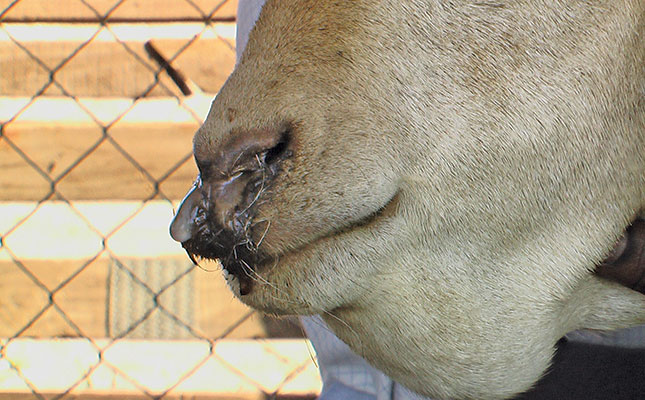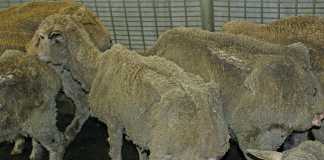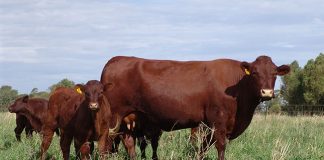
Photo: Roelof Bezuidenhout
The cost of managing wireworm in South Africa is estimated to be about R595 million a year. Unfortunately, resistance to anthelmintic drugs, used to control parasitic worms, is on the rise, which makes wireworm control with these drugs almost impossible.
“The effect of wireworms in livestock can be extremely damaging,” says Dr Arina Shepherd, a veterinarian specialising in goats and sheep in Underberg, KwaZulu-Natal.
She explains that one female can lay up to 10 000 eggs a day for 21 days. Each egg develops into an infective larva and eventually a blood-sucking wireworm that can cause a sheep to lose 0,05ml of blood a day.
“Collectively, wireworms can suck 90ℓ of blood from a sheep over a period of 90 days. Bear in mind that an average 60kg sheep only has four to five litres of blood. This underscores the fatal effect that wireworms can have on a herd.”
Case study
Hoedspruit sheep farmer Gert Bezuidenhout has had first-hand experience of the effects of a serious wireworm infection. At the start of 2015, he bought 1 000 ewes to add to his flock of 2 000.
“The next thing I knew, there was a massive outbreak of wireworm among my sheep,” he recalls.
From December 2015 to August 2016, Bezuidenhout lost 900 sheep to the infestation, which had a devastating affect on his revenue.
“I tried a variety of remedies to treat the outbreak, but no remedy killed all the worms. With sheep dying around me, I was desperate for a solution.”
One of his neighbours introduced Bezuidenhout to a vaccine against wireworm, called Wirevax.
“If it wasn’t for this approach to wireworm management, I wouldn’t have survived,” he says.
Gut lining
The vaccine is made of antigens sourced from the gut lining of the parasite. Once injected, the sheep mounts an immune response and develops antibodies that bind to the gut lining of the worm and prevent it from digesting the blood meal.
Over time, the worm starves and its egg output decreases. Eventually, it dies.
Research shows that due to decreased egg output, the vaccine lowers pasture contamination by between 80% and 90%, eventually making grazing safer and limiting the need for dosing specifically for wireworm.
The vaccine’s mode of action is completely different from that of anthelmintics in that it stimulates immunity against wireworm in sheep.
For more information on the vaccine Wirevax, email Hanré Bredenkamp Ferreira, business unit manager for livestock at Afrivet, at [email protected].













